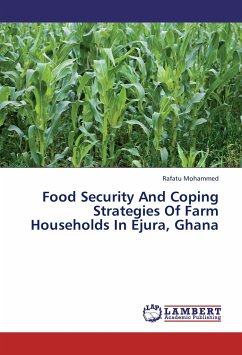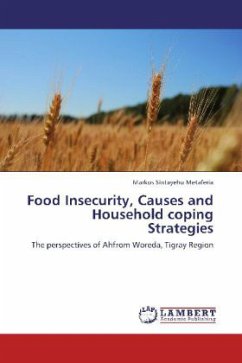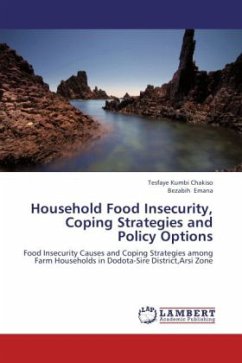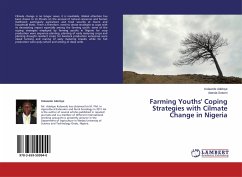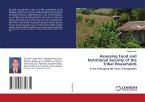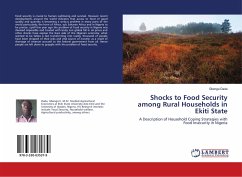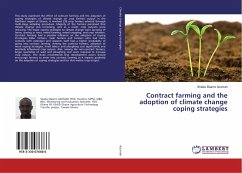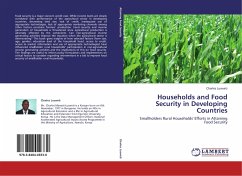Over 60 percent of the population in Ghana depends on agriculture which is largely subsistent for their livelihoods. Crops grown are mainly staple food crops with relatively low output, making food crop farmers the most vulnerable to food insecurity in society. Ejura Sekyedumasi district, one of the nation s food baskets, is characterised largely by a food crop farming population.The study therefore examines the food security situation in the Ejura Sekyedumasi district. Specifically, periods in which farm households are vulnerable to food insecurity were found using descriptive statistics; the level of food security among farm households was determined by measuring the calories/person/day of each household and comparing it with the minimum dietary energy requirement (MDER) of 1800 kcal/person/day based on FAO (2004-2008) recommendations; and the coping strategies adopted by farm households when they are food insecure were identified by using frequency of responses.
Bitte wählen Sie Ihr Anliegen aus.
Rechnungen
Retourenschein anfordern
Bestellstatus
Storno

